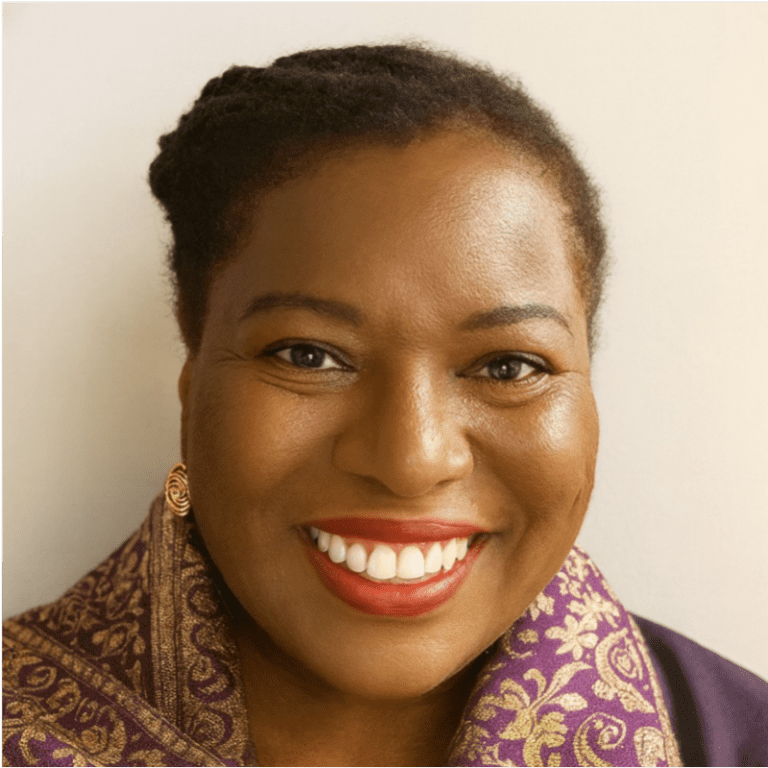Exploring The Role of African Indigenous Knowledge in the Age of Tech & AI – Josiah Umezurike

Have you ever felt like your business isn’t quite clicking with your audience? Despite your best marketing efforts, does something still feel… off? The answer might not lie in a new strategy or trend—it could be something far more profound: a deeper connection to your roots. What if the key to building a truly resonant brand lies in embracing the rich heritage of African indigenous knowledge?
Learn How to Leverage Your Story through our Story To Asset Framework.
Imagine infusing your entrepreneurial journey with the stories, values, and wisdom passed down through generations. This isn’t just storytelling—it’s about reclaiming your narrative and turning it into a powerful force for connection and success.
See the full podcast interview with Josiah Umezurike
The Power of Storytelling in Entrepreneurship
Storytelling isn’t just a buzzword; it’s a fundamental human experience. From ancient griots to modern-day influencers, stories have always been a bridge between individuals, cultures, and generations. For African diaspora entrepreneurs, your story is a unique blend of ancestral wisdom, migration, adaptation, and ambition. It’s a narrative that can set you apart in a crowded market.
Consider the success of Adriana Barbosa, who, motivated by her struggles growing up as an Afro-Brazilian in São Paulo, created the Feira Preta Festival in her 20s to support Black culture and entrepreneurs.
The festival, which started with music, literature, and plays, has drawn over 200,000 visitors and has turned into one of Latin America’s largest Black culture events. Barbosa’s efforts expanded into the PretaHub platform, which focuses on building an equitable market for Afro Diaspora entrepreneurs.
See also From Personal Narrative to Global Impact: Using Your Story to Connect with the Diaspora
Despite challenges like funding issues and opposition from some communities, PretaHub has invested over $11 million Brazilian reals ($2.2 million USD) in supporting businesses. This initiative has aided over 10,000 Black entrepreneurs, particularly women, in various sectors across Brazil, Africa, and South America.
Integrating African Indigenous Knowledge into Modern Business
Incorporating African indigenous knowledge into your business model isn’t just about honoring tradition; it’s about creating a sustainable and ethical framework for growth. These knowledge systems emphasize community, respect for nature, and holistic well-being—principles that are increasingly relevant in today’s business landscape.
Josiah Umezurike, a Nigerian-born technologist, exemplifies this integration. With over 25 years in the tech industry, Umezurike has worked with Fortune 500 companies and government agencies. Yet, his approach to technology is deeply rooted in his Igbo heritage.
He advocates for blending ancient knowledge with modern innovation, creating a more holistic approach to technology that prioritizes human connection, ethical development, and environmental stewardship.
Integrating African Indigenous Knowledge (AIK) into modern business isn’t just culturally enriching—it’s also a powerful strategy for innovation, sustainability, and building purpose-driven brands. Here are three of the best ways to do it:
1. Embed Indigenous Principles into Your Business Values and Leadership Model
Why it works:
African Indigenous systems often emphasize communalism, consensus-building, respect for elders, environmental stewardship, and holistic well-being. Embedding these values into your company’s mission, leadership style, and day-to-day decision-making creates a more human-centered and ethical business culture.
How to do it:
- Replace rigid hierarchy with community-style leadership—promote collaboration over competition.
- Use proverbs and storytelling to communicate company values, echoing traditional African ways of transferring knowledge.
- Build policies around stewardship and social accountability, not just profit.
Example:
The Ubuntu philosophy (“I am because we are”) can inform HR practices, team building, customer care, and even conflict resolution, helping businesses foster loyalty and empathy.
2. Design Products and Services Informed by Traditional Knowledge Systems
Why it works:
Indigenous knowledge offers time-tested approaches to agriculture, health, design, architecture, sustainability, and even spiritual well-being. When adapted thoughtfully, it can lead to products and services that are not only unique but also rooted in authenticity and ecological balance.
How to do it:
- Integrate indigenous healing methods into wellness or skincare brands.
- Use traditional fabrics, motifs, or building materials with cultural significance.
- Revive indigenous agricultural techniques (e.g., permaculture, seed saving) in sustainable food businesses.
Example:
Brands like Shea Radiance have built international beauty lines using traditional African practices around shea butter processing and ethical sourcing from women’s cooperatives in West Africa.
3. Incorporate Indigenous Communication, Storytelling, and Symbolism into Brand and Marketing
Why it works:
African cultures have rich oral traditions—storytelling, symbols, music, and dance have always been tools for education, community cohesion, and value transmission.
Using these elements in branding and marketing builds deeper resonance and emotional connection, especially within diaspora communities.
How to do it:
- Center brand stories around personal and ancestral narratives.
- Use traditional storytelling structures or folklore to explain product’s purpose.
- Integrate indigenous languages, symbols (like Adinkra or Nsibidi), and proverbs in your visuals and campaigns.
Example:
Obehi Podcast does this beautifully by exploring identity, history, and purpose-driven business through interviews that blend tech innovation with traditional African storytelling.
The Rise of African Diaspora Entrepreneurs
The African diaspora is making significant strides in the entrepreneurial world. In the United States alone, there are 2.6 million African American-owned businesses, generating $150 billion in annual revenue. These businesses are starting at a rate three times the national average, demonstrating a strong entrepreneurial spirit within the community.
According to the U.S. Census Bureau, Black business ownership is steadily rising. Between 2007 and 2012, the number of Black or African American-owned businesses grew by an impressive 34.5%, increasing from 1.9 million to 2.6 million. In comparison, the total number of businesses in the U.S. grew by just 2.0% during the same period, from 27.1 million to 27.6 million.
Despite this growth, Black-owned businesses still make up only 9.4% of all U.S. firms, lagging behind the 13.1% share of the U.S. adult population that identifies as Black or African American, based on 2012 Census estimates.
These statistics align with insights gathered by Obehi Ewanfoh, who has interviewed over 1,000 professionals and business leaders through The Obehi Podcast. His conversations highlight the persistent gaps—and the growing momentum—within the Black entrepreneurial landscape.
The Obehi Podcast is a storytelling-driven platform that showcases voices from across the African diaspora. Launched in 2019 by Obehi Ewanfoh, based in Verona, Italy, the podcast brings together a diverse range of experts: entrepreneurs, scholars, researchers, coaches, writers, and cultural leaders to share their lived experiences and professional insights.
Leveraging Your Heritage for Business Success
Your heritage is more than a backdrop; it’s a strategic asset. By integrating elements of your African roots into your business, you can create a brand that resonates on a deeper level with your audience. This approach fosters authenticity, builds trust, and differentiates you in a competitive market.
Consider the success of African and Caribbean-owned businesses in the United Kingdom, which had a combined turnover of £3.6 billion in 2016. These businesses are increasingly breaking into the mainstream, making significant contributions to the UK economy.
Here are three of the best ways heritage can be leveraged in diasporan entrepreneurship to drive purpose, connection, and success:
1. Story-Driven Branding and Identity
How it works:
Use your personal and cultural history to shape a compelling brand story that connects emotionally with your audience. Your heritage becomes the narrative backbone, highlighting your journey, traditions, values, and the legacy you’re building.
Why it matters:
In a saturated marketplace, authenticity wins. Storytelling rooted in heritage creates trust, relatability, and brand loyalty, especially among niche or underserved communities seeking representation.
Example:
An African diaspora fashion entrepreneur might incorporate traditional patterns, fabrics, or family stories into their designs and product descriptions, transforming clothing into a cultural experience.
2. Cultural Innovation in Products and Services
How it works:
Infuse indigenous knowledge systems, practices, or aesthetics into your offerings—whether it’s food, wellness, education, or tech. Heritage becomes a source of innovation, not just tradition.
Why it matters:
It offers a unique value proposition—blending old and new, local and global. This approach respects the past while solving present-day problems in culturally relevant ways.
Example:
A wellness brand might use traditional African herbs or healing rituals in their product line while promoting their cultural significance and sustainable sourcing.
3. Community Building and Legacy Creation
How it works:
Leverage your heritage to create community-oriented platforms or experiences, like storytelling events, mentorship programs, or diaspora-specific networks. Position your business as a vessel for cultural preservation and empowerment.
Why it matters:
People rally around shared identity. By turning your heritage into a bridge, you create loyalty, impact, and legacy, turning customers into co-creators and cultural ambassadors.
Example:
An entrepreneur could start a podcast or virtual summit showcasing African diaspora voices and insights, building a strong, purpose-driven audience around shared roots and collective progress.
Practical Steps to Reclaim Your Story
Storytelling is a powerful act of reclamation for the African diaspora, allowing individuals to reconnect with their roots, dismantle harmful stereotypes, and bridge the distances created by history and geography.
You might also like Cultural Identity and Social Change: How Your African Heritage Powers Your Storytelling
Through shared narratives, the diaspora becomes not only more united but also more deeply enriched by the cultural legacy of its African origins. Here are the key steps to effectively reclaim your story within the diaspora community.
- Reflect on Your Journey: Take time to understand your personal and ancestral history. What values, traditions, and experiences can you incorporate into your business narrative?
- Share Your Story: Use platforms like podcasts, blogs, and social media to share your journey. Authentic storytelling can create a strong emotional connection with your audience.
- Build Community: Engage with other African diaspora entrepreneurs. Collaborative efforts can amplify your impact and provide mutual support.
- Stay Authentic: Ensure that your business practices align with the values you promote. Authenticity builds trust and credibility.
Conclusion: Your Story is Your Strength
In the fast-paced world of entrepreneurship, it’s easy to get lost in trends and strategies. However, your unique story, rooted in African heritage, is a powerful tool that can set you apart and drive your success. By embracing and sharing your narrative, you not only honor your ancestors but also pave the way for future generations of African diaspora entrepreneurs.
Remember, your story is your strength. Reclaim it, share it, and let it guide your entrepreneurial journey.
Learn How to Leverage Your Story through our Story To Asset Framework.





